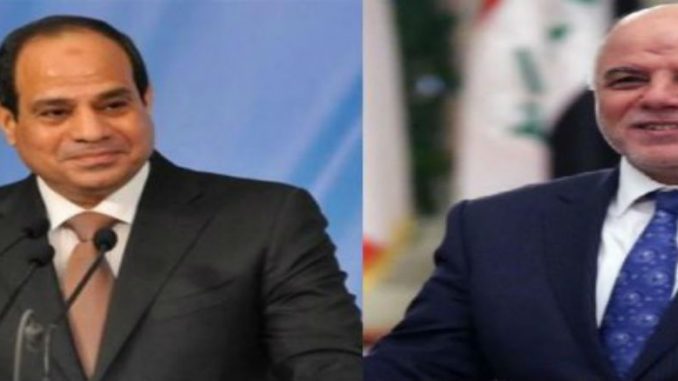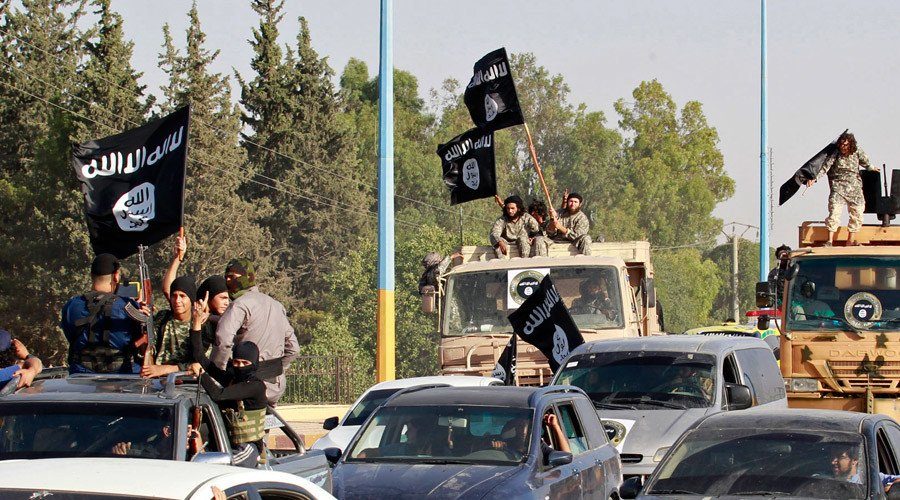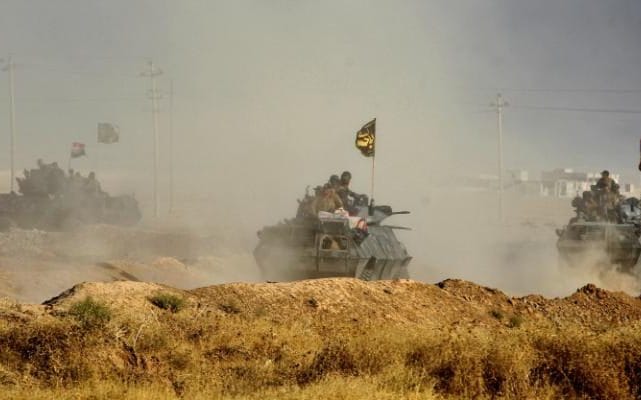
Israeli news website for Intelligence affairs ‘Nziv Net’ claimed that Egypt is about to train four Iraqi army units on war against terrorism, in the light of the rapprochement between Egypt and the Iranian axis in the region.
The Israeli news site said, “Egypt had agreed to send peacekeeping troops to Syria based on an Iranian request as well as Iraq’s decision to replace Saudi Arabia in providing Egypt with cheap oil supply with Iranian approval. The military cooperation between Egypt and Iraq has become a normal step for enhancing the relations between Egypt and the Iranian-Iraqi axis.”
The site considered the Egyptian move ‘a vague step’ as Iraq and Iran are two Shiite countries whereas Egypt is a prominent Sunni country.
It also added that, “In the background we can witness a great improvement in the relations between Egypt and the Houthis (a Shiite rebel movement) in Yemen with a clear Iranian manipulation after Egypt had sent military troops to Yemen for fighting on the Saudi side against the Shiite rebels and the Iranian presence.”
“It was recently revealed that Egypt has withdrawn most of its troops in the region and left only few ships to secure Bab al-Mandab Strait,” according to Nziv Net.
At an earlier time, the Israeli site, which raises the slogan of “open intelligence sources”, said in previous report that Egypt is a about to send peacekeeping troops to Syria during the coming days to help in maintaining the ceasefire agreement under the auspices of Russia, Iran,and Turkey.”
It also added that Egypt will participate in an international force that aims to stop the bloodshed in Syria. It continued saying that,” Egypt has sent a group of officers to Syria for the first time since the relations have frozen during Morsi’s reign.”
Nziv Net claimed that the Egyptian officers who are currently in Syria have been in a mission to follow the Egyptian activists fighting in Al-Nusra front and the Islamic State (Daesh) to prevent them from joining Sinai Province if they returned back to Egypt after the war ends in Syria.”
Both Iraq and Egypt are fighting terrorism especially with the expansion of ISIS power over Sinai Peninsula through Sinai Province, an ISIS affiliated group since 2013.
Sinai Province has been carrying out various attacks and operations against the Egyptian military and police forces in Sinai Peninsula. Until now the Egyptian regime has not been able to deter the Islamic militants’ expansion. Recently, ISIS has started to launch attacks on Egypt’s western border with Libya.
The Islamic State has first originated in Iraq before spreading out throughout the region. Iraq is fighting the ISIS group, which dominates vast territories in northern and western Iraq since 2014.
Diplomatic and Business Rapprochement between Cairo And Baghdad
Last July, Egypt’s Foreign Minister Sameh Shoukry visited Iraq to hold talks with Iraqi officials on fighting terrorism.
The Iraqi Foreign Minister Ibrahim Al-Jaafari said in a brief statement that Shoukry had arrived in Baghdad on an official visit, giving no further details.
According to the Iraqi lawmaker Mithal Al-Alusi, the top Egyptian diplomat will hold talks on a host of issues, including bilateral relations and counter-terrorism.
Egypt’s foreign ministry said in an official statement that Shoukry’s visit aims at providing support to Iraq in its fight against terrorism and to bolster bilateral ties between the two countries.
Iraqi foreign minister Al-Jaafari visited Egypt in June for talks that are aimed to raise the counter terrorism cooperation level.
In the same context, last October the Egyptian Petroleum Minister Tarek El-Molla who arrived to Baghdad accompanied by an official delegation.
Egypt’s Petroleum Minister met with the Iraqi Prime Minister Haider Al-Abadi who said that Iraq aspires to strengthening ties with Egypt in the energy, industry, and oil & gas fields.
According to a statement released by the Abadi’s press office, the Iraqi Prime Minister discussed with Egypt’s Minister of Petroleum and Mineral Resources Tarek El-Molla, enhancing cooperation between Egypt and Iraq in the fields of industry and oil & gas; in addition to forming an Egyptian-Iraqi partnership through establishing new cooperation strategies between companies in the two countries.
Abadi pointed to counter terrorism operations common ground between both countries as “he stressed increasing joint strategic projects with Egypt that coincided with the Iraqi army victories against terrorism, which allows more chances for joint action.”
In the same context, Egypt’s Petroleum Minister Tarek El-Molla pointed to the importance of strengthening cooperation with Iraq in the areas of industry and oil & gas, as well as other sectors.
“The members of the National Iraqi Alliance, which is the largest Shiite group in the parliament, have called on the Iraqi government to supply Egypt with crude oil on credit, in response to what they described as “blackmail” practiced by Saudi Arabia against Cairo.”
Al-Sisi and the Iranian Axis
In fact, the latest Iraqi stance of offering supplying Egypt with oil came after Saudi Arabia halted its oil supply to Egypt, which indicates that Egypt is moving forward in steady steps toward the new alliance including Iran and Russia against the Saudi and Gulf countries.
First, Al-Sisi’s phone call with Haidar Al-Abadi to declare his support to the battle of Mosul, means that Egypt gave its back to the Gulf and Saudi fears concerning the participation of the popular mobilization Shiite militia.
The second step was Cairo’s reception of Ali Mamlouk, one of the cornerstones of the Syrian regime, to negotiate security coordination in countering terrorism.
The third step was Cairo’s readiness to receive a Houthi delegation, according to Egyptian leaks to the media close to Iran.
There is no doubt that Egypt’s divergent policies from the Saudi stance regarding sensitive issues in the region would intensify the gap between both countries as those matters aren’t only related to national security but they are also related to existence.
The dispute between the two countries isn’t tactical but it is a tremendous strategic one as it is mainly on the fate of the Arab region as well as its political and social existence especially the Sunni political entity in the region
Egypt under al-Sisi seems to be heading for the Iranian-Russian axis through its hostility to all the Arab Spring revolutions and its explicit support to the authoritarian regimes.



